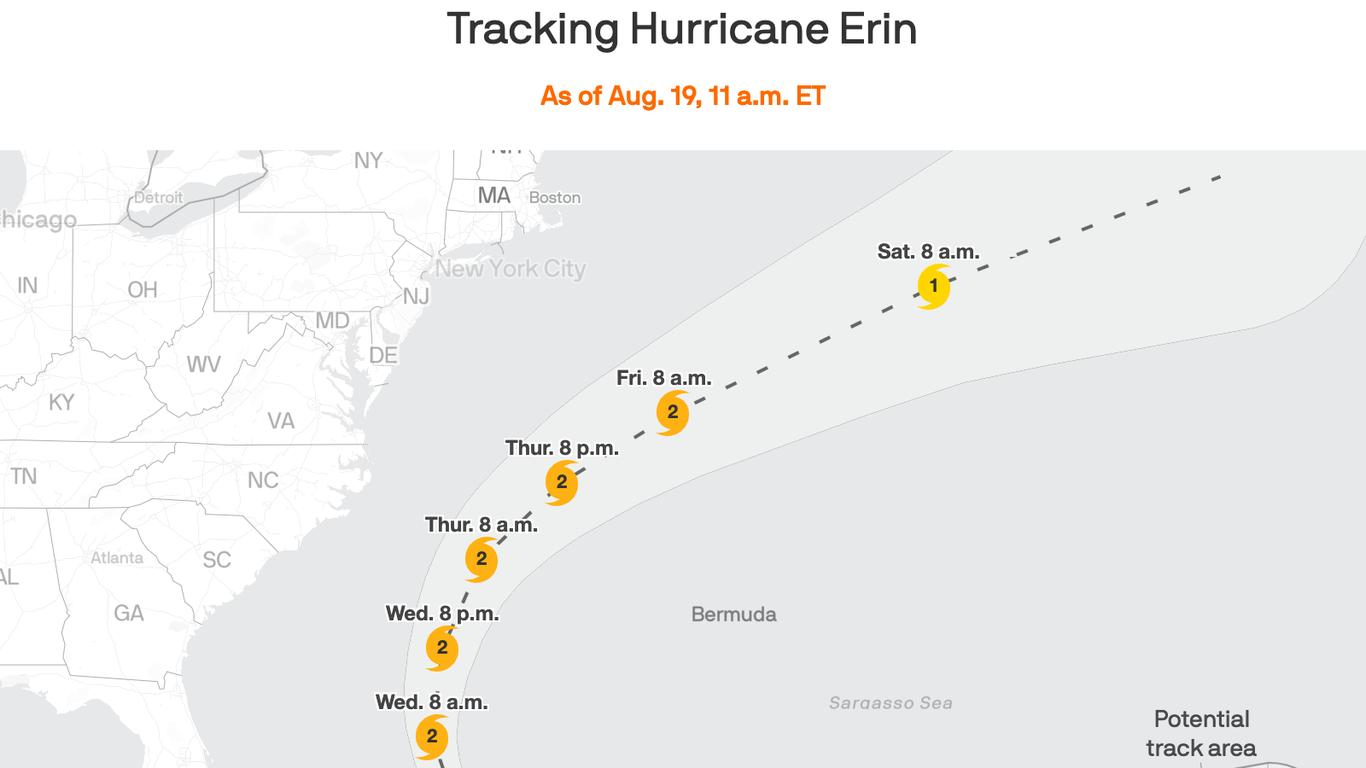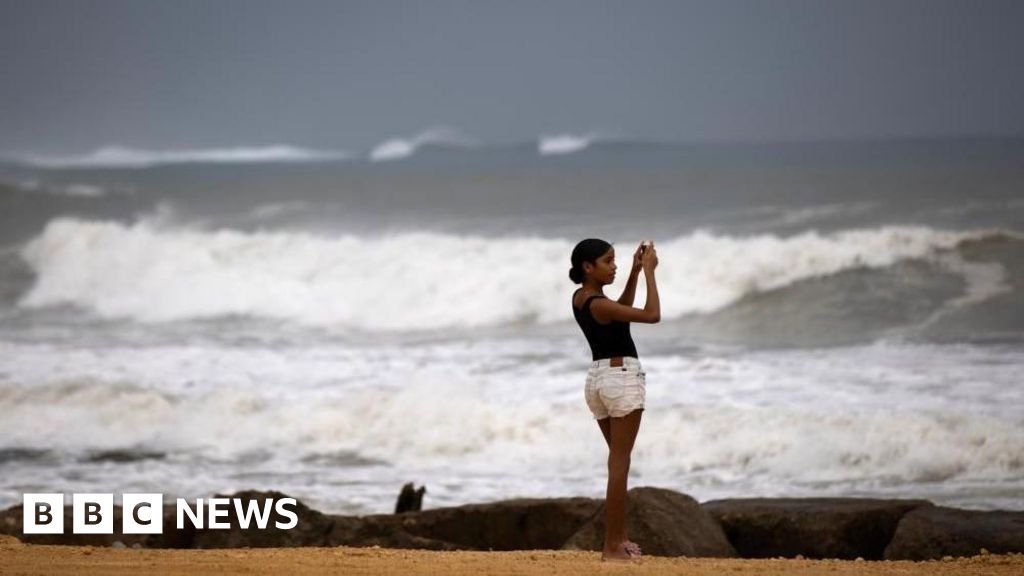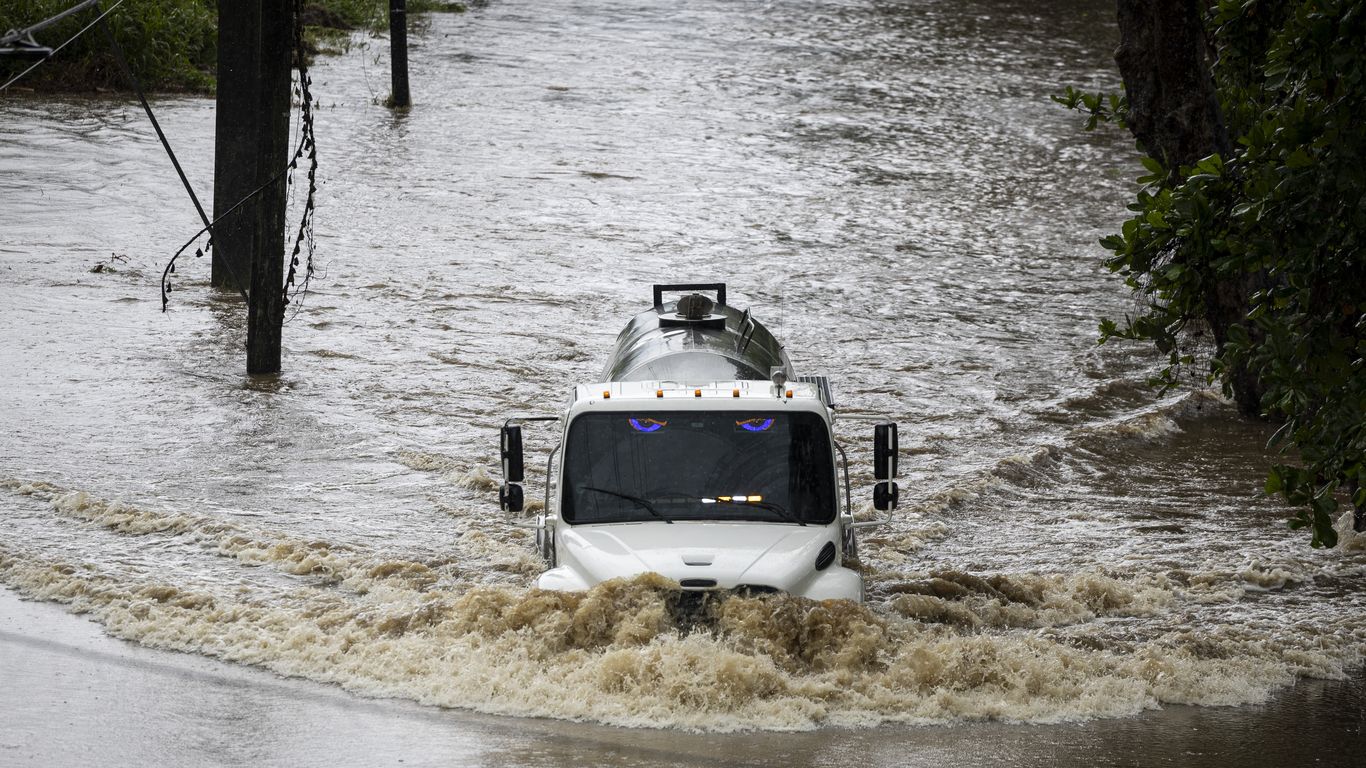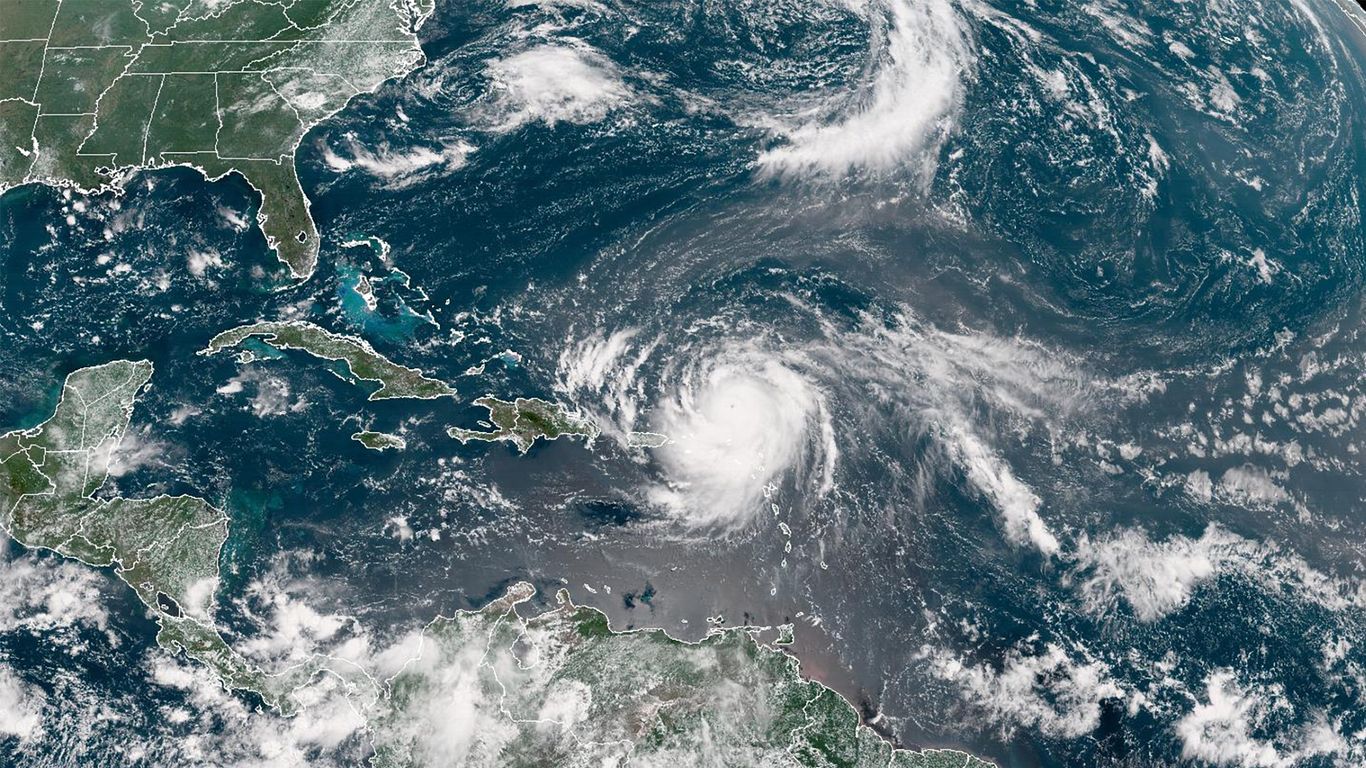Hurricane Erin Approaches East Coast

Hurricane Erin Triggers Storm Alerts on East Coast
North Carolina and Virginia are on high alert as Hurricane Erin makes its way towards the East Coast. The storm has caused North Carolina's governor to declare a state of emergency and has resulted in evacuation orders for two counties in the state. As the hurricane approaches, it is expected to bring strong winds and heavy rainfall, potentially causing power outages and flooding. Some East Coast beaches have already been shut down in preparation for the storm.
Preparations and Precautions
In anticipation of Hurricane Erin, residents in the affected areas are taking necessary precautions to protect themselves and their property. This includes stocking up on supplies, such as non-perishable food and water, and securing their homes. Local authorities have also set up shelters for those who need to evacuate. Additionally, airlines have cancelled flights and some schools have closed in the affected areas.
Potential Impact on the East Coast
The potential impact of Hurricane Erin on the East Coast is a cause for concern. Strong winds and heavy rain can result in damage to infrastructure and properties, leading to potential power outages and flooding. It is important for residents to stay informed and follow the instructions of local authorities to ensure their safety during the storm. As the hurricane continues to move towards the East Coast, it is important for everyone to stay vigilant and take necessary precautions to
About the Organizations Mentioned
North Carolina's governor
The Office of the Governor of North Carolina is a pivotal institution in the state's governance, playing a crucial role in both executive and legislative processes. As the chief executive, the governor is responsible for implementing state laws and overseeing various departments, including administration, commerce, and public safety[2][3]. The governor's office is structured to support these functions through divisions like policy development, legal counsel, and communications[1][3]. **History and Evolution**: Historically, the governor's role in North Carolina has evolved significantly. Until 1997, the governor had limited authority in the legislative process, but constitutional amendments granted the office more power, allowing it to veto legislation[6]. This change marked a significant shift in the governor's ability to influence policy. **Key Achievements**: The governor's office has been instrumental in shaping state policies, particularly in areas like education and economic development. Governors have used their veto power to influence legislation, as seen in the record number of vetoes during Governor Beverly Perdue's tenure[6]. **Current Status**: Currently, the governor is responsible for over 300 appointments to state boards and commissions, with some requiring legislative confirmation[2]. The office also oversees budget formulation and management through the Office of State Budget and Management[3]. **Notable Aspects**: The governor's ability to appoint cabinet members and influence legislative decisions makes the office a focal point for state governance. The role of the press office in communicating the governor's policies is also noteworthy, as it serves as the primary voice for the administration[3]. Overall, the governor's office in North Carolina plays a vital role in state governance, balancing executive authority with legislative collaboration.
Airlines
Airlines are a global industry that operates commercial air transport services, connecting millions of passengers and cargo across the world daily. The industry is a critical driver of global economic growth, social connectivity, and international trade, contributing nearly 1% to the global economy. Airlines operate fleets of aircraft for passenger and freight transportation, offering scheduled and charter services, and are increasingly adopting advanced technologies to enhance efficiency and sustainability. The airline industry has a rich history dating back to the early 20th century, evolving rapidly with technological advances such as jet engines, computerized reservations, and more recently, AI-driven operational planning and predictive maintenance. Over the decades, airlines have expanded globally, forming alliances and low-cost carriers to meet diverse market demands. Despite challenges like the COVID-19 pandemic, which severely disrupted air travel, the industry has shown strong resilience. By 2024 and into 2025, passenger numbers and revenues have rebounded impressively, with passenger traffic expected to surpass 5.2 billion in 2025 and industry revenues reaching a historic $979 billion. Profitability is improving due to factors such as falling fuel prices and strong employment, with passenger load factors hitting an all-time high of 84%. However, growth is uneven globally, with US travel facing some decline amid economic headwinds and geopolitical tensions[2][3][4][7]. Technological innovation is a notable aspect shaping the future of airlines. Airlines are leveraging artificial intelligence for fleet management, flight scheduling, and maintenance, optimizing operational efficiency and safety. Automation in baggage handling and self-service is improving customer experience while addressing labor shortages. Moreover, sustainability initiatives are gaining momentum, with investments in hybrid and electric aircraft, carbon offset programs, and exploration of hydrogen-powered aviation to meet net-zero emissions targets by 2050[7]. Current industry trends include supply chain challenges impacting aircraft availability, rising non-fuel costs, and strategic shifts like increased direct bookings and the rise of low-cost carriers. Despite economic uncertainties, the global airline industr












